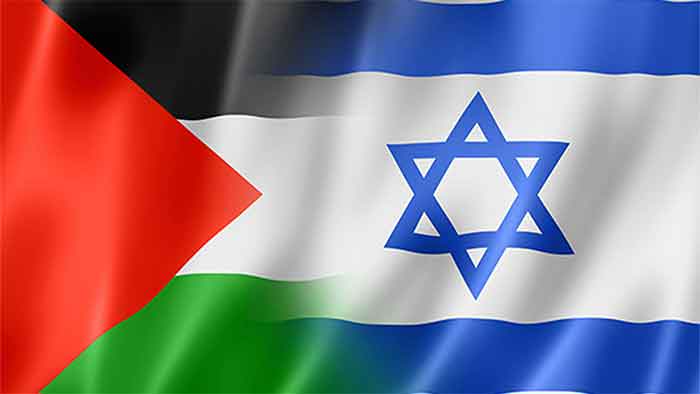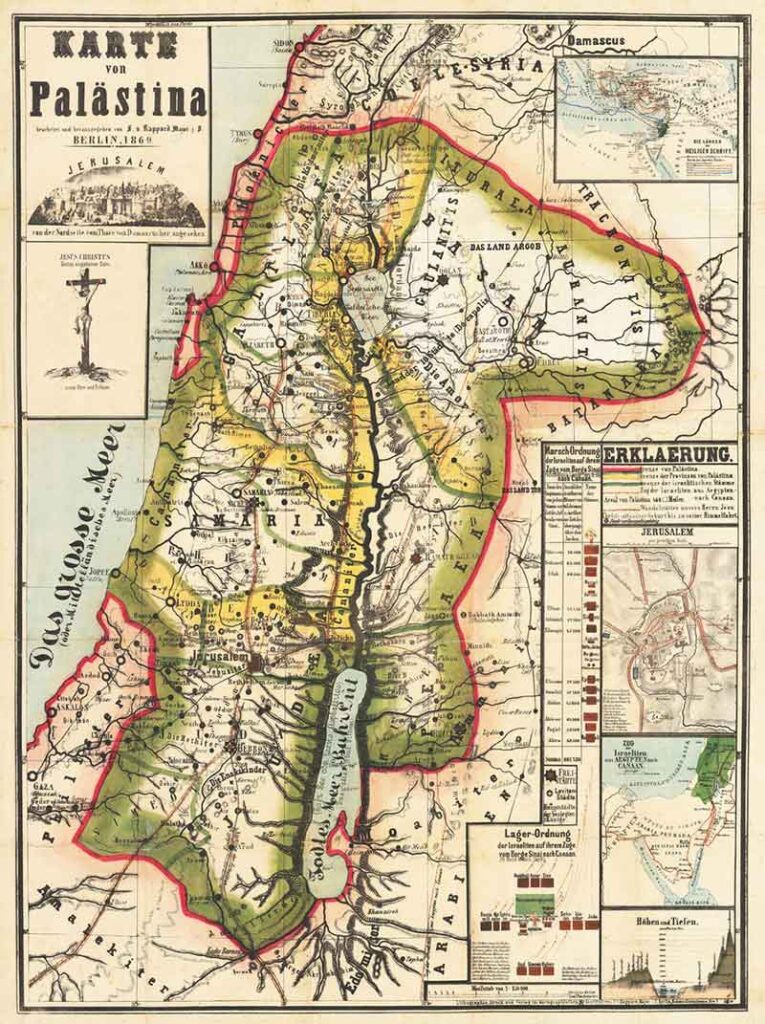
What will it take for the idea of a two-state solution, which was hardly practical to begin with, to be completely abandoned?
Every realistic assessment of the situation on the ground indicates, with palpable clarity, that there can never be a viable Palestinian state in parts of the West Bank and Gaza.
Politically, the idea is also untenable. Those who are still marketing the ‘two-state solution’, less enthusiastically now as compared with the euphoria of twenty years ago, are paralyzed in the face of the Israeli-American onslaught on any attempt at making ‘Palestine’ a tangible reality.
The Palestinian Authority of Mahmoud Abbas is still busy compiling more symbolic recognitions of a state that, at best, exists in the dusty files of the United Nations. Arabs and Europeans, too, still speak of a two-state, rhetoric that is never followed with practical steps that may enforce international law and hold Israel accountable to it.
The fate of Palestine seems to be entirely dependent on the aggressive and violent actions of Israel alone – not only through the policies of Israeli Prime Minister, Benjamin Netanyahu, but all previous Israeli governments.
This trajectory of aggression and violence is likely to continue for as long as Israel is held hostage to the ideology of Zionism which remains committed to territorial, colonial expansion and the ethnic cleansing of the indigenous population.
These two factors – colonialism and ethnic cleansing – can never coexist with the principles of justice and peace. For Zionism to remain relevant, Israel and Palestine must remain in the throes of a protracted, interminable war.
Therefore, it was encouraging to read comments made by Jordanian Prime Minister, Omar Razzaz, in an interview with the British Guardian newspaper on July 21.
“You close the door to the two-state solution, I could very well look at this positively, if we’re clearly opening the door to a one-state democratic solution,” Razzaz said.
Razzaz was referring specifically in the context of Netanyahu’s decision to annex nearly a third of the West Bank and the Jordan Valley. The senior Jordanian official referred to Israel’s annexation policies as the “ushering in (of) a new apartheid state.”
An apartheid state was, practically, ushered in a long time ago. Israel’s so-called Nation-State Law of 2018 merely confirmed an existing reality.
The Law left no doubt regarding Israel’s exclusionist ‘Jewish identity’, formulated at the expense of the Palestinian people, their historic rights in Palestine and the internationally-enshrined Right of Return for Palestinian refugees.
On July 29, the Israeli Knesset (parliament) callously rejected a draft amendment to make the unmistakably racist Nation-State Law slightly less racist. The amendment had called for the inclusion of a clause that guarantees equality for all of Israel’s citizens, regardless of race, religion or ethnicity.
In its current form, Israel represents the very essence of apartheid.
Razzaz knows this, as do many politicians and leaders throughout the Middle East, in Europe and across the world. Unlike his counterparts elsewhere, however, the Jordanian Prime Minister had the courage to imagine a future in Palestine and Israel that is not inundated by empty clichés of ‘solutions’ that were never fair, to begin with.
Razzaz’s positive and upbeat tone of words is notable.
“I challenge anybody from Israel to say yes, let’s end the two-state solution, it’s not viable,” he said. “But let’s work together on a one-state democratic solution. That, I think, we will look at very favorably. But closing one and wishful thinking about the other is just self-deception.”
Other Arab officials, prior to Razzaz, alluded to the one-state possibility, but largely in a negative context. Palestinian Authority officials, in particular, have waved this card before, often threatening Israel that, if illegal settlement expansion was not frozen, for example, Palestinians would have no alternative but to demand a one state.
What Razzaz is saying is quite different, if not radical, as Jordan, which signed a peace agreement with Israel in 1994, has remained the most visible Arab advocate for the two-state solution for many years. Razzaz’s words bring that ‘self-deception’ to an end.
Of course, political necessity will compel Jordan, and others, to continue to pay lip service to a political ‘solution’ that will, unlikely, ever materialize. Israelis and Palestinians are now conjoined in such a way that physical separation between Palestinian Arabs and Israeli Jews is impossible. Additionally, speaking of a two-state solution while Israel is cementing a one apartheid state reality is a waste of precious time that should be used to foster equality, accountability and a just peace.
Ordinary Palestinians, too are beginning to realize the futility of the two-state paradigm. According to a February poll conducted by the Palestinian Center for Policy and Survey Research, 61% of all Palestinians no longer believe that ‘a two-state solution’ is viable. The same poll suggests that 37% support the idea of a single state solution. Judging by previous poll numbers, it seems that, before long, the majority of Palestinians will embrace the latter as the most rational and achievable objective.
It will take time because the establishment of an independent Palestinian state has been the only rallying cry by the Palestinian leadership for nearly three decades.
However, even prior to the 1960s, the Palestinian national movement adopted a political strategy that was predicated on the establishment of a one democratic state for Christians, Muslims and Jews. Alas, political expediency impelled late Palestinian leader, Yasser Arafat and the Palestine Liberation Organization (PLO) to shift tactics, settling for a Palestinian state that would, in theory, be incrementally established in disconnected parts of the occupied territories – Gaza, Jericho, Area A, B, and so on.
Even the latter idea, which was most unfair to Palestinians, was still rejected by Israel, and Netanyahu’s latest annexation scheme is proving to be the final nail of the two-state coffin.
Since the two-state solution is no longer workable, Palestine and Israel are now left with one of two options: a protracted, racist and violent apartheid or coexistence in a modern, democratic, and secular state, for all of its people.
The democratic and sustainable choice should be obvious, even to politicians.
– Ramzy Baroud is a journalist and the Editor of The Palestine Chronicle. He is the author of five books. His latest is “These Chains Will Be Broken: Palestinian Stories of Struggle and Defiance in Israeli Prisons” (Clarity Press, Atlanta). Dr. Baroud is a Non-resident Senior Research Fellow at the Center for Islam and Global Affairs (CIGA), Istanbul Zaim University (IZU). His website is www.ramzybaroud.net
SIGN UP FOR COUNTERCURRENTS DAILY NEWSLETTER













































